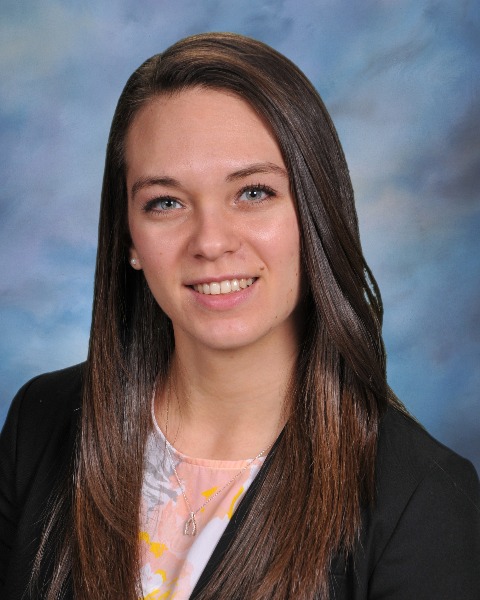Medical Education: Resident
Category: Abstract Submission
Medical Education 10 - Medical Education: Resident III
265 - Support for POCUS Education in Pediatric Residency Programs
Sunday, April 24, 2022
3:30 PM - 6:00 PM US MT
Poster Number: 265
Publication Number: 265.330
Publication Number: 265.330
April R. Slamowitz, Children's National Health System, Washington, DC, United States; Piyawat Arichai, Children's National Health System, Washington, DC, United States; Janagan Naahanathan, Children's National Health System, Washington, DC, United States; Angela Maxwell, George Washington University School of Medicine and Health Sciences, Washington, DC, United States; Sonali Basu, Children’s National Hospital, Arlington, VA, United States; Dr. Alyssa Abo, Children's National Hospital, Washington, DC, United States; James E. Bost, Children's National Health System, WILTON MANORS, FL, United States

April R. Slamowitz, MD
Pediatric Resident
Children's National Health System
Washington, District of Columbia, United States
Presenting Author(s)
Background: Point-of-Care Ultrasound (POCUS) is an imaging modality that can safely and effectively provide timely diagnostic and procedural information at the bedside by the providing clinician. POCUS spares the patient the risk of ionizing radiation and allows for rapid integration of images with clinical history and physical examination.
POCUS training has been implemented across many subspecialities, including Emergency Medicine, Family Medicine, and Internal Medicine. This training has become an integral part of residency training.
There is currently no guideline for POCUS training in pediatric residency. Few studies have examined or quantified pediatric attending support for residency POCUS training.
Objective: The aims of this study were to 1) create a multicenter needs assessment for POCUS education by surveying attendings across different pediatric subspecialities and stages of career; 2) assess attitudes of attendings towards POCUS adoption in residency training; 3) describe past and current POCUS experiences and 4) identify perceived barriers towards POCUS adoption.
Design/Methods: We conducted a cross-sectional survey using a standardized quantitative questionnaire distributed to attendings at two tertiary, urban-area children’s hospitals via email listservs. Information was collected through a de-identified HIPAA compliant REDCap database.
Results: A total of 134 attendings completed the survey out of approximately 500 surveyed. Of the respondents, 40% had been in practice for 1-10 years and 60% for >11 years. The attending subspecialities were distributed with the highest response rates from emergency medicine with 15% and general pediatrics (14% outpatient, 13% inpatient).
Thirty-nine percent of attendings received POCUS education in their training, with the majority receiving that training as an attending. Sixty-nine percent of attendings noted interest in POCUS education. Of the attendings, 90% were in support of POCUS education in pediatric residency. When stratified for years of experience, 98% of attendings with 1-10 years of experience supported POCUS education, whereas only 85% of attendings with >11 years supported POCUS education (p=0.015). The perceived barriers to POCUS training were availability of POCUS faculty, availability of equipment, and time needed to obtain skills.Conclusion(s): Pediatric attending physicians desire POCUS education and strongly support POCUS education in pediatric residency. Several barriers towards POCUS adaptation have been identified, such as availability of appropriate equipment and availability of faculty to educate and supervise trainees.
Slamowitz_CVCV_2021.pdf
POCUS training has been implemented across many subspecialities, including Emergency Medicine, Family Medicine, and Internal Medicine. This training has become an integral part of residency training.
There is currently no guideline for POCUS training in pediatric residency. Few studies have examined or quantified pediatric attending support for residency POCUS training.
Objective: The aims of this study were to 1) create a multicenter needs assessment for POCUS education by surveying attendings across different pediatric subspecialities and stages of career; 2) assess attitudes of attendings towards POCUS adoption in residency training; 3) describe past and current POCUS experiences and 4) identify perceived barriers towards POCUS adoption.
Design/Methods: We conducted a cross-sectional survey using a standardized quantitative questionnaire distributed to attendings at two tertiary, urban-area children’s hospitals via email listservs. Information was collected through a de-identified HIPAA compliant REDCap database.
Results: A total of 134 attendings completed the survey out of approximately 500 surveyed. Of the respondents, 40% had been in practice for 1-10 years and 60% for >11 years. The attending subspecialities were distributed with the highest response rates from emergency medicine with 15% and general pediatrics (14% outpatient, 13% inpatient).
Thirty-nine percent of attendings received POCUS education in their training, with the majority receiving that training as an attending. Sixty-nine percent of attendings noted interest in POCUS education. Of the attendings, 90% were in support of POCUS education in pediatric residency. When stratified for years of experience, 98% of attendings with 1-10 years of experience supported POCUS education, whereas only 85% of attendings with >11 years supported POCUS education (p=0.015). The perceived barriers to POCUS training were availability of POCUS faculty, availability of equipment, and time needed to obtain skills.Conclusion(s): Pediatric attending physicians desire POCUS education and strongly support POCUS education in pediatric residency. Several barriers towards POCUS adaptation have been identified, such as availability of appropriate equipment and availability of faculty to educate and supervise trainees.
Slamowitz_CVCV_2021.pdf
